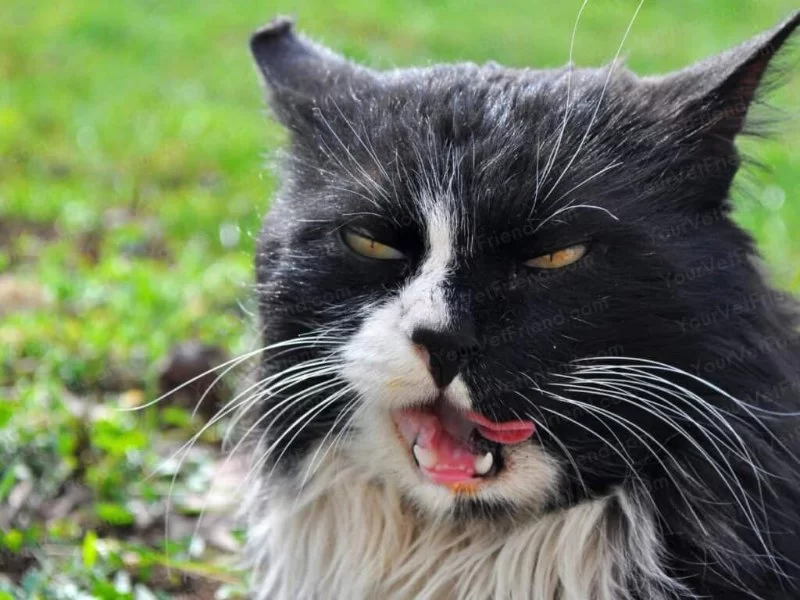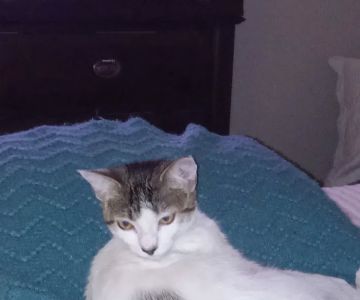Understanding Cat Excessive Yawning and Lip Licking: Causes and What It Means
1. Introduction: What Are Excessive Yawning and Lip Licking in Cats?
As a cat owner, noticing strange behaviors in your pet can be concerning. Excessive yawning and lip licking are behaviors that may seem harmless at first, but they could be indicative of underlying issues. In this article, we’ll explore why your cat may exhibit these behaviors, what they mean, and how you can address them effectively. Whether your cat’s yawning is a sign of relaxation or a health concern, understanding the context is key to keeping your feline friend healthy and happy.
2. Possible Causes of Excessive Yawning and Lip Licking
While yawning and lip licking are common behaviors in cats, they can sometimes indicate certain health or behavioral issues. It’s important to look at the context in which these behaviors occur. Let’s dive into the potential causes:
2.1 Normal Relaxation or Sleepiness
Just like humans, cats yawn when they are tired or relaxed. If your cat is yawning after waking up from a nap or stretching, it’s likely just a sign of sleepiness and relaxation. Lip licking in this context could also indicate that your cat is feeling comfortable and content. This behavior is completely normal and requires no concern.
2.2 Stress or Anxiety
Excessive yawning and lip licking can sometimes be linked to stress or anxiety in cats. If your cat is in an unfamiliar environment, such as a car ride, a visit to the vet, or a new home, these behaviors may indicate nervousness. Cats often use lip licking as a calming signal, and yawning may be a response to stress.
2.3 Dental Problems or Oral Discomfort
Another reason for lip licking could be related to dental or oral health issues. Cats with dental pain, such as tooth decay or gum disease, may lick their lips excessively as a way to relieve discomfort. Yawning could also indicate that your cat is trying to stretch their jaw to ease the pain. If your cat shows signs of oral discomfort, it’s a good idea to schedule a vet checkup.
2.4 Nausea or Upset Stomach
Sometimes, lip licking and yawning can be signs that your cat is feeling nauseous or has an upset stomach. Just like humans, cats may lick their lips as a way to manage the discomfort of nausea. If your cat is also showing signs of vomiting or decreased appetite, it’s best to consult your veterinarian.
2.5 Illness or Pain
In some cases, excessive yawning and lip licking can be symptoms of an underlying illness or pain. Cats are experts at hiding discomfort, so these behaviors may be subtle signals of something more serious. If your cat is exhibiting other symptoms, such as lethargy, loss of appetite, or behavioral changes, it’s important to seek professional veterinary care.
3. When to See a Veterinarian
If your cat’s yawning and lip licking behaviors seem excessive or are accompanied by other signs of illness, it’s essential to take action. Here’s when you should contact your vet:
- Changes in Eating or Drinking Habits: If your cat is eating or drinking less than usual, it could be a sign of dental issues, nausea, or other health concerns.
- Behavioral Changes: If your cat becomes more withdrawn, irritable, or aggressive, these changes may point to discomfort or illness.
- Additional Symptoms: If yawning and lip licking are accompanied by vomiting, diarrhea, weight loss, or lethargy, seek veterinary attention immediately.
4. How to Help Your Cat
If your cat’s excessive yawning and lip licking are related to stress or anxiety, there are a few things you can do to help:
- Provide a Safe Space: Create a quiet, secure environment where your cat can retreat and feel comfortable.
- Use Calming Products: Consider using pheromone diffusers or calming treats to reduce anxiety in stressful situations.
- Regular Vet Visits: Keep up with regular checkups to ensure your cat’s overall health, including dental care and vaccinations.
5. Conclusion
Excessive yawning and lip licking in cats can have multiple causes, from normal relaxation to stress, dental problems, or illness. By paying attention to the context in which these behaviors occur and watching for other signs of discomfort or health issues, you can better determine whether your cat needs medical attention. If in doubt, always consult a veterinarian to ensure your feline friend is happy and healthy.
If you’re concerned about your cat’s health or need more advice, visit Hidden Brook Veterinary for expert care and guidance.












